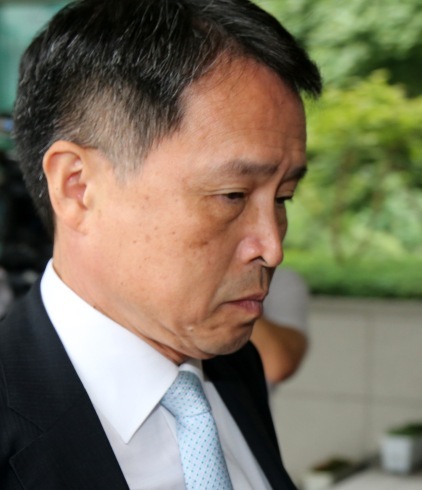
Korea on Tuesday protested Japan’s renewed sovereignty claim to the islets of Dokdo in its new defense white paper.
In the annual document, Tokyo identified the windswept islets in the East Sea as its territory and said the ownership issue “still remains unsolved.” The description has been rehashed since 2005.
Seoul’s Foreign Ministry summoned Takashi Kurai, a minister and deputy chief of the Japanese Embassy, calling the claim “unacceptable” and urging an immediate rectification. The Defense Ministry also called in a Seoul-based defense attache.
“We have been repeatedly calling on the Japanese government to reflect on its assertion about Dokdo, which is clearly indigenous Korean territory in terms of history, geography and international law,” Foreign Ministry spokesperson Cho Tae-young said in a statement.
“If the Japanese government has yet to relinquish its unjust sovereignty claim over Dokdo that first fell victim during its pillaging on the Korean Peninsula, its wrongful historical understanding must be sternly criticized.”
Located between the two countries, the set of small volcanic islets lies in ample fishing grounds believed to hold large gas deposits and other resources.
Tokyo illegally incorporated the islets in 1905 in the run up to a full-fledged occupation of the peninsula. Seoul regained control of them after its 1945 independence. A small batch of coast guards operates on the islets.
The archipelago country has for decades claimed ownership over Dokdo through school textbooks, diplomatic and defense papers and other outlets.
The territorial claim, together with the country’s repeated distortion of historical facts and failure to apologize for sex slavery and forced labor during World War II, has soured public sentiment here toward Tokyo.
In August 2011, the Korean government rejected the entry of three hardline Japanese lawmakers who sought to visit the islets and reiterate Japan’s six-decade claim.
Two months earlier, the Japanese government temporarily barred its public servants from flying with Korean Air in retaliation for the flag carrier’s pilot flight of its Airbus A380 jetliner over Dokdo, calling it “provocative.”
By Shin Hyon-hee
(heeshin@heraldcorp.com)



















